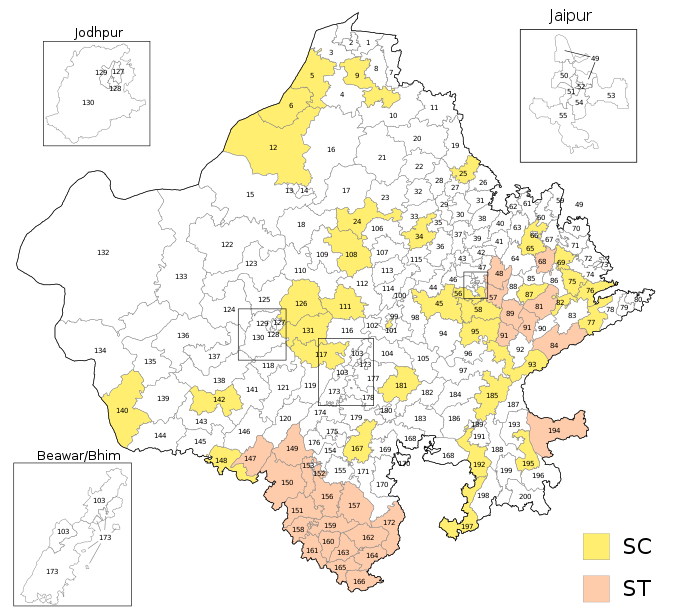Bill to appoint Election Chief Commisioner is Controversial
The Chief Election Commissioner and Other Election Commissioners (Appointment, Conditions of Service and Term of Office) Bill, 2023, faced debate in the Rajya Sabha, with significant modifications to address objection. Originating from a Supreme Court directive, the bill outlines the process for appointing top election officials, initially proposing a selection panel that replaces the Chief Justice of India with a Union Minister, sparking controversy. Key amendments include retaining the status of Election Commissioners as equivalent to Supreme Court judges and safeguarding them from arbitrary removal. The bill also introduces qualifications for the selection of election commissioners. Despite alterations, concerns persist about the composition of the selection panel and potential executive influence.

Will it be the same for Rajasthan as MP and Chattishgarh?
The BJP’s newly elected MLAs in Rajasthan are set to meet to decide the new chief minister after recent announcements for Chhattisgarh and Madhya Pradesh. Defence Minister Rajnath Singh, along with BJP leaders Vinod Tawde and Saroj Pande, will meet to discuss potential candidates, including Vasundhara Raje, Arjun Ram Meghwal, Gajendra Singh Shekhawat, and Ashwini Vaishnaw. Former chief minister Vasundhara Raje, Union ministers Arjun Ram Meghwal and Gajendra Singh Shekhawat, along with Union railways minister Ashwini Vaishnaw, are among the leading contenders. The swearing-in ceremony is expected to take place on Friday. The BJP secured 115 out of 199 seats in the recent elections in Rajasthan.

Jairam Ramesh criticised BJP
Senior Congress leader Jairam Ramesh criticized the Bharatiya Janata Party (BJP) for selecting Ujjain South MLA Mohan Yadav as the Chief Minister of Madhya Pradesh, citing serious allegations, including “large-scale manipulation” in the Ujjain Master Plan. Ramesh claimed that videos of Yadav making objectionable statements and abusing others are circulating on social media. He questioned the selection of Yadav, asking if this is “Modi’s guarantee” for Madhya Pradesh. The BJP had recently announced Yadav as the Chief Minister, with Jagdish Devda and Rajendra Shukla appointed as deputy chief ministers.
Who is Rajasthan’s new CM Bhajan Lal Sharma?
Bhajan Lal Sharma secures the Chief Ministerial position in Rajasthan as announced by the Bharatiya Janata Party (BJP) on Tuesday. Emerging victorious in the Sanganer assembly seat during the recent elections, Sharma triumphed over Congress’s Pushpendra Bhardwaj by a substantial margin of over 48,081 votes. The announcement was made by BJP’s Vasundhara Raje, who was also considered for the top post. Notable figures like Gajendra Shekhawat, Mahant Balaknath, Diya Kumari, Anita Bhadel, Manju Baghmar, and Arjun Ram Meghwal were in contention for the Chief Minister role. Additionally, Diya Kumari and Premchand Bairwa are appointed as Bhajan Lal Sharma’s two deputies.